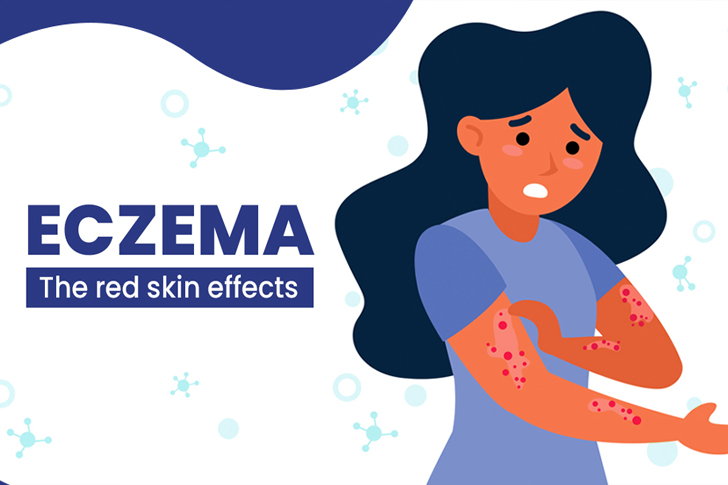Understanding Eczema: Essential Information
Eczema, also known as atopic dermatitis, is a chronic skin condition characterized by dry, itchy skin, which can lead to redness, swelling, and cracking. It is a common ailment, affecting around 31.6 million people in the United States, which constitutes nearly 10% of the population. Understanding eczema is crucial for managing its symptoms and improving the quality of life for those affected. This article aims to shed light on essential aspects of eczema including its types, causes, symptoms, and treatments, using scientifically backed data.

Types of Eczema
Eczema is not a single condition but a group of diseases that cause similar symptoms. The most common type is Atopic Dermatitis which largely affects children but can continue into adulthood. Other types include Contact Dermatitis, which occurs when the skin reacts to allergens or irritants; Dyshidrotic Eczema, characterized by blisters on hands and feet; Nummular Eczema, identified by circular patches of irritated skin; and Seborrheic Dermatitis, which usually affects oily areas of the body.
Causes and Risk Factors
The exact cause of eczema is not clear but is believed to involve a combination of genetic and environmental factors. Genetic predisposition plays a significant role, as having a family history of eczema, asthma, or hay fever increases the risk of developing the condition. Environmental factors include allergens, irritants like soaps and detergents, microorganisms, temperature changes, and stress, all of which can trigger or worsen the symptoms.
Furthermore, the condition is associated with an overactive immune system that reacts aggressively when exposed to irritants. People with eczema often have a mutation of the gene responsible for creating filaggrin, a protein that helps maintain a protective barrier on the top layer of the skin. Without enough filaggrin, moisture can escape and bacteria can enter, making the skin more susceptible to infections.
Symptoms of Eczema
The symptoms of eczema can vary widely among individuals but typically include intense itching, red or brownish-gray patches, small raised bumps that may leak fluid when scratched, thickened or scaly skin, and raw sensitive skin from scratching. These symptoms often appear on the face, back of the knees, wrists, hands, or feet. Eczema can be particularly severe in infants, where it can produce oozing, crusting rashes that greatly affect the child’s comfort and sleep.
Notably, eczema often appears in cycles — a patient might experience flare-ups followed by periods when the symptoms improve or clear up. Triggers that can cause these flare-ups include harsh soaps, perfumes, wool, environmental factors like pollen and smoke, foods, stress, and more.
Diagnosing Eczema
Diagnosing eczema primarily involves examining the skin and reviewing medical history. Dermatologists might also perform patch tests or other skin tests to rule out other skin diseases or identify conditions that accompany eczema. There is no single test to diagnose eczema, so doctors often have to rely on symptoms and patient histories.
Treatment and Management
While there is no cure for eczema, effective management is geared towards healing the affected skin and preventing flare-ups. Most treatments involve a combination of home care strategies and medication.
Home care strategies are the first line of defense in managing eczema and include moisturizing regularly, avoiding harsh soaps and detergents, using gentle skincare products, managing stress, and avoiding known irritants and allergens. For mild to moderate cases, over-the-counter remedies like hydrocortisone creams can be beneficial. Severe cases might require prescription-strength medications, including corticosteroids, antibiotics to treat infection, or even newer biologic drugs that target the immune system’s response.
Light therapy or phototherapy is another treatment avenue for eczema. It involves exposing the skin to controlled amounts of natural sunlight or artificial UV light under medical supervision. Though beneficial for some, it’s not suitable for everyone and requires careful handling to avoid skin damage.
Frequently, comprehensive treatment plans that include both medical treatments and lifestyle adjustments can help manage symptoms and improve quality of life in eczema patients significantly.
Conclusion
Living with eczema can be challenging but gaining a deep understanding of the condition empowers individuals to manage symptoms effectively. It’s important for patients to work closely with healthcare providers to tailor a treatment plan that addresses their specific needs. Research continues to bring hope, with new treatments being developed that promise greater relief in the future.







Recent Comments